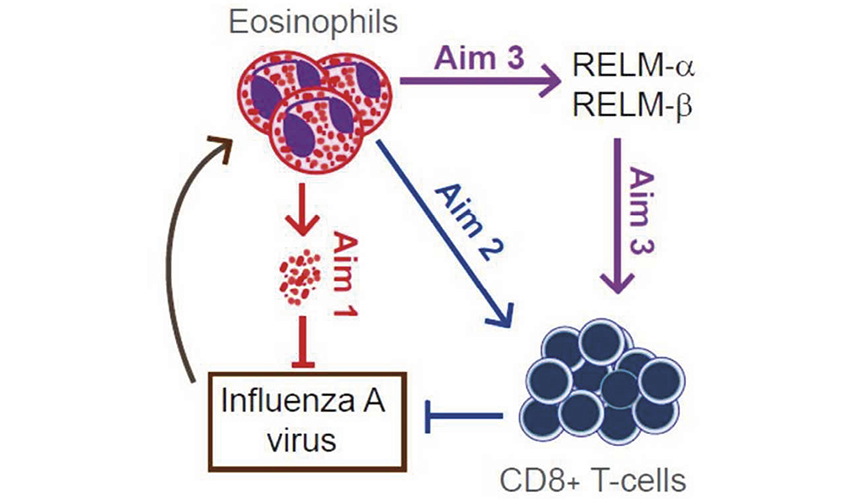Asthma armor
A type of white blood cell present in the lungs of children suffering from asthma has an antiviral effect against the influenza virus, according to new research published by Le Bonheur Children’s investigators.
The research, published this spring in the Journal of Immunology, is the basis for a new five-year, $1.9 million National Institutes of Health grant led by Le Bonheur researcher Amali Samarasinghe, PhD. Samarasinghe will use the grant to further her understanding of the white blood cells, known as eosinophils. She hopes to eventually develop new influenza antivirals or vaccines using her body of work.
Samarasinghe has spent the last seven years studying the lung epidemiology of asthmatics who suffered an attack during the 2009 influenza pandemic. She found that asthmatics were more likely to be hospitalized during the pandemic, but less likely to suffer severe morbidity and mortality. She later verified the findings in mouse models to establish that allergic inflammation actually protected against influenza A virus infection and disease.

Researchers in her lab found pulmonary eosinophilia linked with allergic respiratory disease promoted antiviral host defenses. Furthermore, the transfer of eosinophils from the lungs of allergen sensitized and challenged mice into influenza virus infected mice resulted in reduced morbidity and viral load, and improved lung compliance and increased CD8+ T cell numbers in the airways.
“Our aim is to understand how eosinophils interact with other immune cells in the allergic lungs during an influenza virus infection, along with the proteins that may be involved with these interactions.”
Steroids – often given to asthmatics to alleviate asthma attacks – can mitigate these anti-influenza immune responses in asthmatics through the removal of eosinophils. She hopes her lab’s work will add a better understanding when steroids are appropriate to treat asthma attacks, and when it might be best to let a patient’s immune system fight off a virus.
The new grant, which has already been awarded, has allowed Samarasinghe to double her existing lab space and add two post-doctoral research associates to her lab.
Help us provide the best care for kids.
Le Bonheur Children's Hospital depends on the generosity of friends like you to help us serve 250,000 children each year, regardless of their family’s ability to pay. Every gift helps us improve the lives of children.
Donate Now








